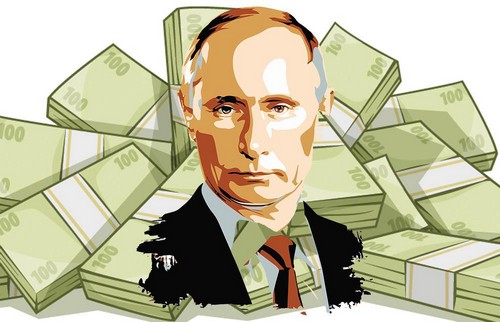1. What the FSB’s top official thinks of Russia’s conflict with the West
What happened:
The head of the Federal Security Service (FSB), Alexander Bortnikov, gave an interview to the state-run newspaper Rossiiskaya Gazeta. The occasion was the 100th anniversary of the Cheka – the Soviet secret police force which preceded the KGB and today’s FSB.
Half of the interview focused on the history of the Soviet secret services and the FSB. The other half zoomed in on foreign adversaries’ supposed plans to destroy Russia.
Why the world should care:
Bortnikov’s interview is a rare opportunity to gain some understanding of what those inside the FSB – perhaps the most powerful faction in the Russian elite today – think about the conflict with the West. For top FSB officials, the idea that foreign powers want to tear Russia aparts is not a propaganda cliche, but a fundamental component of their worldview.
Bortnikov, however, is still moderate in his speech, unlike the former director of the FSB, now head of the National Security Council, Nikolai Patrushev. The latter was less careful in his word choice, saying in multiple interviews that the U.S.’ goal was to destroy Russia in order to get access to its rich resources.

2. The government could extend capital amnesty to return more funds to Russia
What happened:
At a meeting with Russia’s wealthiest businesspeople, Vladimir Putin announced a special anonymous treasury bonds issue for Russian billionaires who want to return their foreign holdings home. The Bell has learned that the government is also considering the possibility of extending a capital amnesty.
- Under its capital amnesty law, Russian residents wanting to return their undeclared foreign assets to the country were exempt from tax penalties or prosecution.
- The law was introduced in 2014, after capital outflow from Russia increased amid an economic downturn and deteriorating relations with the West. The amnesty expired on July 1, 2016.
- About 2,500 Russians took advantage of the amnesty. The total amount that has returned to Russia is unclear, but in 2015 foreign direct investment from offshores – where many Russians keep their money – rose by billions of dollars.
- Repatriation of capital through special treasury bonds is a novelty. The terms of the issue are likely to be favorable, with rates exceeding those of bank deposits and guaranteed anonymity for bidders.
- The move comes on the request of large business owners, who fear U.S. sanctions will be extended after February 2018, putting their western assets at risk.
Why the world should care:
In general, the repatriation of foreign funds, which are mostly held offshore, is good news for the economy. However, for Russia’s elite those money streams provide an essential link to the Western world. Under the current circumstances, bringing their capital back home might isolate Russia even further.
3. Russian parliament to register individuals as media foreign agents
What happened:
Russian lawmakers are taking their campaign against state-backed foreign media a step further. A month after introducing a law which could see international media outlets branded foreign agents, parliament has proposed amendments which would allow individuals to be added to the foreign agents media list.
The move is described as yet another retaliatory move against the labeling of Russian state TV channel RT and news agency Sputnik as foreign agents in the U.S.
RT and Sputnik editor-in-chief Margarita Simonyan suggested the legislation could be used against Russian journalists who report for U.S. funded media in Russia, helping them to avoid having to officially register as media outlets in Russia.
Why the world should care:
While Russian and American state-backed news outlets might have different goals, attitude and credibility, the foreign agent war affects innocent people in both countries – like this local radio station owner in Virginia and many others.
4. The Russians behind Silicon Valley giants’ success
What happened:
Russia does not just provide the world with oil, offshore capital and secret service conspiracy theories. In Silicon Valley, Russians contribute to the success of major tech companies and most promising startups.
Why the world should care:
Despite what you read, not all Russians are oligarchs with dubiously-made fortunes. There are talented entrepreneurs. Here’s one: Google product director for VR and the designer of the YouTube mobile app, Andrei Doronichev.
The original version of this newsletter first appeared on The Bell.


